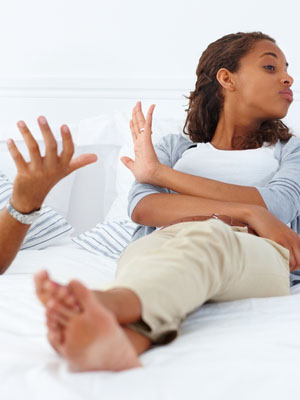Mental health disorders aren't a big deal. Or more specifically: if somebody has one, it shouldn't be a big deal to you.
We've been lucky that over the last few years, we've watched the mental health taboo slowly disintegrate. Thanks to everything from celebrities to podcasts to online communities (Tumblr, you godsend) to pop culture (I could write 30 000 words on Homeland alone) to music, the stigma of having a mental health disorder is slowly — and I mean slowly — fading, allowing the likes of depression, bipolar disorder, anxiety, ADHD, and others to be spoken about in outdoor voices. Less hushed whispers, less "don't tell anyone, but…" — they're a fact of life. And while we've still we've got eons to go before somebody talks about something they've dealt without being met with a sympathetic head tilt and "Aww… well that's okay…" it's still progress. Because newsflash: it is okay.
We live in an age where treatment is accessible and doctors are educated, and we're being told and shown constantly that not only have most of us dealt with mental health disorders in some capacity, we've dealt with them and are doing fine. It's an awesome time, and we're incredibly lucky. But in terms of receiving the mental health disorders of other people, we've still got a long way to go.
Case in point: Amanda Bynes. As she publicly struggled with body image issues, paranoia, irrationality, and a whole bevy of symptoms (arguably related to paranoid schizophrenia) on the world's stage, she was met with criticism, insults, jokes, and exploitation. Now at a mental health care facility, the jokes have stopped because now her situation became "official" — but shouldn't have we known better before making fun of her public outbursts? Yes.
I get it: mental health disorders seem scary, and the way most of us tend to deal with fear is through humour. It feels harder to say "maybe we shouldn't make fun of Amanda Bynes because she is obviously suffering with a serious condition" because that connotes responsibility; it means we have to acknowledge it, acknowledge her, and acknowledge that it's something that could happen to us. So what's the opposite of responsibility? Distance. Ignorance. The choice not to acknowledge. And that's the real problem — if we don't acknowledge, we're just teaching younger people that the mental health taboo exists for a reason.
Including myself, I can't count the number of people I know (or know of) who live with a mental health disorder. I can't tell you how many people I know who've been to therapy, or who are on medication, or have had to help a friend or family member through their own mental health saga. Everybody knows somebody, and everybody's gone through something, and we've all had to learn to cope in some capacity, and it's embarrasing to think otherwise. (Especially when you think about the number of people in the world.) This isn't to say you need to shout information from the rooftops, but it's a reminder that when it comes to disorders like depression, or borderline personality, or anxiety, or this or that, there's nothing about them we need to hide. And why would there be? If somebody takes a Tylenol when you're hanging out, you wouldn't raise your eyebrows, or ask them not to take it in front of you, or make fun of them because they can't "snap out of" migraines, or lecture them on having perspective — that would be completely unreasonable. But thinking about mental health in a reasonable way runs the risk of "TMI."
When I was diagnosed with Bipolar II a year ago on October 4 (I will accept books and money and lattes as anniversary gifts), I was terrified of "TMI." Days after,I told my best friends, but regretted doing so immediately. I'd open up about it when I thought it was safe, then closed down when I wasn't somebody understood. I played down my symptoms and what I had been feeling, positive I was being a drama queen (even though it can take a little while to find a healthy balance). And then I told the Internet. And when I did so, I was met only by understanding, kindness, and relatable messages of "I've been there." I felt no shame, no condescention, no "you'll get over this" — nothing. In fact, it was after writing that piece, I felt like myself for the first time in years, and began thinking about my disorder only when it was something I needed to actively think about (like writing a piece about mental health). For me, the stigma was gone because I could finally say "fuck the stigma."
Everyone should say "fuck the stigma." There should be no stigma attached to mental health just as there should be no stigma to any other pre-existing conditions. Stigmas exist only because we put them there, so we have and have always had the power to take them away. Those with mental health conditions (a.k.a. a good number of us) shouldn't have to feel weird about their shit, just like somebody with arthritis shouldn't feel weird about theirs. We're all different, we all think differently, and we're all on our own paths. As soon as shame is assigned, that path gets dark, and it becomes "a thing." Then, everybody loses (because now a person feels awful, and we feel awful for making that person feel awful — or we don't feel awful, and then we teach a new generation of people to feel awful), and the only way to avoid is to educate yourself, tolerate, and embrace. (Not physically, unless asked.)
We've gotten this far, the rest is easy. Mental health awareness isn't some trend or some hip way of thinking — it's the only answer. So begin with the first step: literal common sense.












